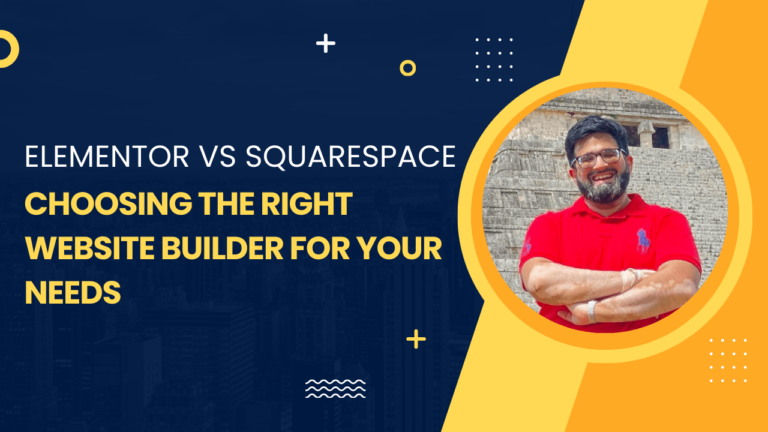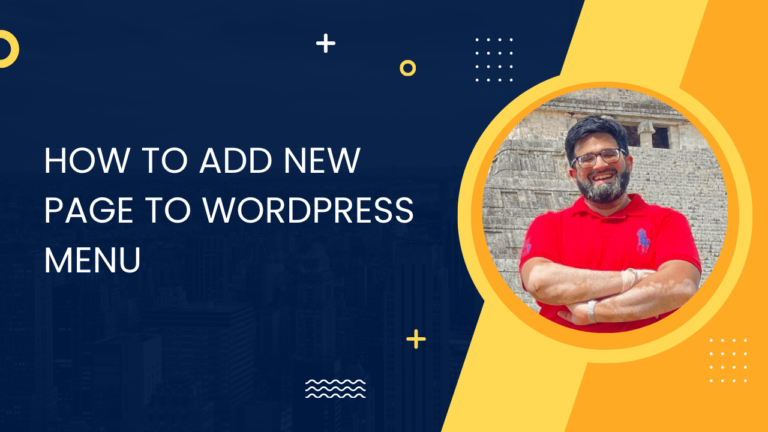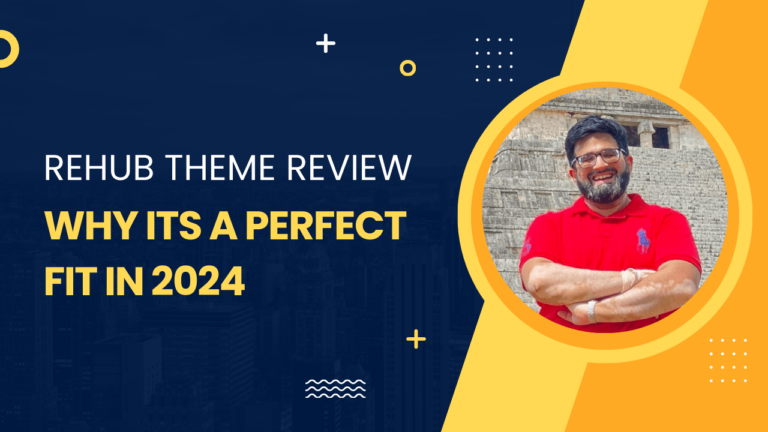Best WordPress Page Builders for 2024
We have gathered a list of the Best WordPress Page Builders for 2024. When you’re looking to design a WordPress website, page builders offer a way to customize and create layouts without extensive coding knowledge. These tools are invaluable for bringing your vision to life through an interface that simplifies the design process.
Fundamental Features of Page Builders
Drag-and-Drop Interface: Central to WordPress page builders is the drag-and-drop interface, which allows you to place elements on your pages simply by clicking and moving them to the desired location.
Pre-Designed Templates: Many builders offer a library of templates, making it easy to start with a professional design.
Customization Options: You’re provided with myriad options to adjust colors, fonts, and sizing to ensure your site reflects your brand’s style.
Real-Time Editing: You can see your changes as they are made, streamlining the design process and minimizing the guesswork.
Top WordPress Page Builders Reviewed
When selecting a WordPress page builder, you’re looking for ease of use, a rich selection of widgets and templates, and flexibility that can cater to both beginners and developers. From drag-and-drop functionality to advanced customization options, each builder has unique features designed to help you craft your ideal website efficiently.
1. Elementor’s Flexibility and Widgets
Elementor stands out for its high level of flexibility, featuring a wide array of widgets that allow you to design to your heart’s content. The intuitive interface lets you see changes in real-time, providing a seamless experience from start to finish.
2. Thrive Architect – Fastest, Truly Visual Builder
Thrive Architect is celebrated for its speed and visual editing capabilities. It’s a powerhouse for creating conversion-focused pages, making it an excellent tool for marketers and business owners aiming to optimize their online presence.
3. Divi Builder’s Visual Composer and Templates
The Divi Builder excels with its Visual Composer and an extensive library of pre-made templates. Whether you’re a beginner or a seasoned developer, Divi’s robust options enable you to create beautiful and complex layouts with ease.
4. Beaver Builder: Ideal for Beginners and Developers
Beaver Builder strikes a balance between simplicity for beginners and flexibility for developers. With a clean interface and a plethora of modules, you can assemble pages quickly and with minimal fuss.
5. Brizy and SeedProd: User-Friendly and Conversion-Focused
Brizy and SeedProd are renowned for their user-friendly interfaces. Both builders provide tools and features that cater to creating conversion-focused websites, with Brizy focusing on intuitive design while SeedProd offers specialized landing page capabilities.
6. Oxygen and Themify: Advanced Customization Options
Oxygen and Themify allow for advanced levels of customization. Oxygen gives you the power to build virtually any design with its flexible system, while Themify comes with a range of themes and modules to enhance the functionality and aesthetic appeal of your site.
Integrating with WordPress Ecosystem
Selecting the right WordPress page builder involves ensuring seamless integration with the broader WordPress ecosystem. This encompasses compatibility with themes and templates, enhancing WooCommerce stores, and optimizing for SEO and page speed to ensure your website performs at its best.
Themes and Template Compatibility
When you choose a page builder, it’s crucial to verify its compatibility with WordPress themes and templates. A well-integrated page builder should:
- Offer pre-designed templates that work flawlessly with a wide range of themes.
- Enable custom styling options to adjust the visual appearance to match your brand.
Enhancing WooCommerce Online Stores
For your WooCommerce store, a page builder can significantly enhance the user experience. Look for features that:
- Offer WooCommerce-specific modules to create custom product pages and layouts.
- Support WooCommerce plugins to add functionalities such as wishlists or product filters.
Optimizing SEO and Page Speed
Your website’s performance is pivotal, and a good page builder should contribute positively by:
- Generating clean, SEO-friendly code that facilitates better search engine indexing.
- Including speed optimization tools to reduce page load times without sacrificing design quality.
By focusing on these integration aspects, your choice of page builder can enhance your website’s functionality within the WordPress ecosystem.
The Business Side: Pricing and Support
When choosing a WordPress page builder, it’s essential to weigh the costs against the benefits and consider the type of support provided. This section will help you understand the differences between free and premium plans as well as the support options available to you.
Free vs Premium Plans: Evaluating Costs
Free Plans often provide basic features effectively for small businesses and freelancers. Premium plans, on the other hand, offer advanced functionalities that are essential for agencies looking to deliver unique design experiences.
- Free Plans: Typically include basic drag-and-drop features and pre-designed templates.
- Premium Plans: Offer enhanced features such as:
- Responsive design options
- eCommerce integrations
- Advanced customization capabilities
Pricing for premium plans can vary significantly. You may encounter:
- Single-Site Licenses: Usually more cost-effective for individual projects.
- Multi-Site Licenses: Better suited for agencies managing multiple client sites.
Customer Support and Lifetime Access Options
With premium plans, support is a critical service that ensures your website can overcome any technical difficulties. Here’s what you need to know:
- Support Options: Premium plans often include priority support, sometimes 24/7, via multiple channels like live chat, email, or phone.
- Pro Version Perks: May grant access to a dedicated support team, ensuring faster response times and personalized assistance.
Lifetime Access is a consideration for long-term investment:
- Lifetime Support: Some premium plans offer lifetime access to support and updates, a one-time payment ensuring continuous assistance.
- Lifetime Access Benefits: Eliminates recurring costs, ideal for your long-term financial planning.
When choosing a plan, prioritize your business needs and consider the added value of robust support and potential lifetime access options.
Additional Functionalities and Add-Ons
When enhancing your WordPress website, add-ons and plugins deliver functionalities that can elevate your design and marketing efforts. These diverse tools enable you to incorporate everything from engaging popups to intricate CSS and HTML features, often without needing to code.
Using Add-Ons for Marketing and Design
For marketing and design, add-ons are essential. They allow you to implement advanced features like A/B testing for your pages, aiding in optimizing conversions. With the right add-ons, you can integrate stunning galleries and create a consistent brand image through unified visual design elements. Not to mention, many page builders support HTML and CSS customizations, giving you the flexibility to achieve precisely the look you desire.
Exploring Popups, Sliders, and Contact Forms
Popups and sliders can be pivotal in grabbing attention and enhancing user experience. A popup builder is a significant add-on that can help with newsletter signups or promotional announcements. Sliders and galleries showcase your images and content dynamically, making your site more interactive. Moreover, contact forms serve as a straightforward method for visitors to reach out, and they are easily integrated via plugins, adding a vital communication channel to your site.
- Popups: Effective for announcements and email signups.
- Sliders/Galleries: Enhance the dynamic display of content.
- Contact Forms: Streamline communication with visitors.
Leveraging Plugins for Extended Features
By leveraging plugins, you extend your site’s features beyond the standard offerings. These can include integrations with social media, analytics, and other marketing tools. Plugins can also aid in improving site performance by optimizing images, implementing caching mechanisms, and more. With the vast arsenal of available plugins, your ability to extend your website’s capabilities is nearly limitless.
| Feature | Purpose | Example Plugins |
|---|---|---|
| Social Media | Facilitate sharing and engagement | Easy Social Share Buttons |
| SEO | Improve search engine visibility | Yoast SEO |
| Performance | Enhance speed and efficiency | W3 Total Cache |
| Security | Protect your site from threats | Wordfence Security |
Incorporating these additional functionalities and add-ons can transform your site’s performance and user engagement. Whether through design tweaks using CSS, marketing enhancements, or extending the core capabilities of your site with various integrations and plugins, the right combination of these tools can set your WordPress site apart.
Usability and Learning Curve
When selecting a WordPress page builder, it’s pivotal to consider how it aligns with your skill level and its learning curve. Effective page builders should streamline the site-building process, but they vary in user-friendliness.
Ease of Use for Beginners vs Experienced Users
For beginners, a page builder with drag-and-drop functionality is crucial. Elementor and Beaver Builder are known for their intuitive interfaces that lower the entry barrier for users with limited technical knowledge. In contrast, experienced users might prefer Oxygen Page Builder or Visual Composer, as these offer intricate controls and customization options that cater to a deeper understanding of web development.
Accessing Tutorials and Learning Resources
Most reputable page builders provide a wealth of learning resources. For instance, Elementor has an extensive tutorial library, easing new users into the platform. It’s important to choose a builder with robust support and resources — from guides to video tutorials — ensuring you can overcome any learning challenges.
- Elementor and Beaver Builder: Rich tutorial libraries and active user communities.
- Divi: Offers comprehensive documentation and elegant design capabilities.
The Pros and Cons of Live Editing
Live editing is a feature that allows you to see changes in real-time, a significant advantage for speeding up the design process. However, heavy live editors can sometimes slow down performance. Weighing the trade-off is vital:
- Pros: Immediate visual feedback, no page refreshing needed, streamlines design iteration.
- Cons: Potential performance lag on resource-heavy pages, possible compatibility hiccups with other plugins or themes.
The Rise of Drag-and-Drop Functionality
The advent of drag-and-drop in WordPress page builders has been revolutionary. It has:
- Democratized Web Design: You no longer need to be a developer to create a stunning WordPress website.
- Streamlined Website Creation: With intuitive tools, site development is expedited, saving time and resources.
- Boosted Creativity: By removing technical barriers, more people can innovate in web design.
Responsive Design and Mobile Compatibility
Responsive design ensures your WordPress site looks good on any device, which is non-negotiable in today’s mobile-centric world. Page builders take care of this by:
- Automatic Adjustment: Page elements reshuffle to fit various screen sizes.
- Preview Modes: You can preview how your site will appear on different devices, allowing for targeted adjustments.
- Customizable Breakpoints: Fine-tune how your site changes across devices by setting specific breakpoints for your content to adjust.
Using a reliable WordPress page builder, you can trust that your website will not only look great but also perform well across all devices.
Technical Considerations for Developers
When selecting a WordPress page builder, as a developer, you should consider several technical aspects that will affect both the workflow and the end product. These include your ability to customize with HTML/CSS, the page builder’s compatibility with various hosting solutions, and the availability of white labeling for agencies.
Delving into HTML/CSS Customization and Clean Code
Customization:
Your chosen page builder should offer seamless HTML/CSS integration, allowing you to make precise adjustments beyond the standard features.
- HTML/CSS Access: Enables detailed styling and functionality fine-tuning.
- Clean Code: Look for builders that generate streamlined, efficient code to maintain site speed and SEO rankings.
Analyzing Compatibility with Hosting Solutions
Hosting Analysis:
The page builder must operate efficiently across hosting platforms without causing performance bottlenecks.
- Supported Hosts: Verify your hosting provider is compatible with the page builder’s requirements.
- Resource Efficiency: Assess how the page builder manages resources to avoid unnecessary load on servers.
The Role of White Labeling for Agencies
White Labeling:
This feature is especially important for agencies looking to offer a branded experience.
- Agency Branding: Ensure the page builder supports white labeling, allowing you to replace the builder’s branding with your own.
- Client Handoff: A white-labeled builder streamlines client migrations and handoffs by keeping the interface consistent with your agency’s branding.
Choose a WordPress page builder while keeping these technical considerations in mind to secure a robust, developer-friendly foundation for your projects.





